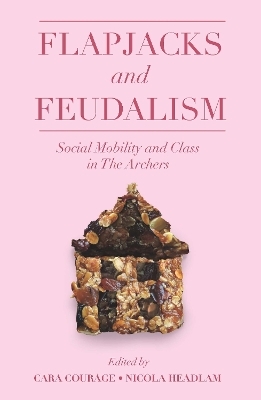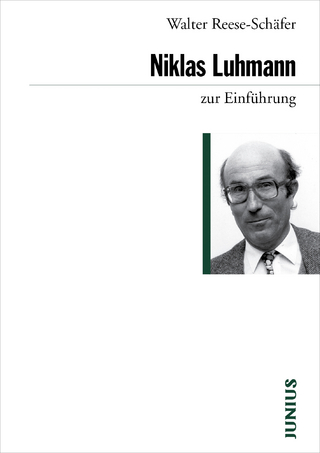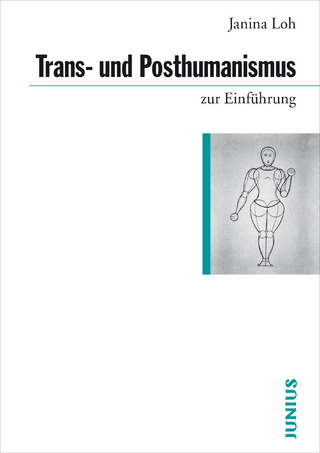
Flapjacks and Feudalism
Emerald Publishing Limited (Verlag)
978-1-80071-389-5 (ISBN)
Flapjacks and Feudalism: Social Mobility and Class in The Archers is an excavation into the family and class politics found in the clans of the residents of Ambridge, in BBC Radio 4's The Archers.
A whole section of the book is devoted to 'The Fall of the House of Aldridge', with Brian's ethical misdemeanours and fall from grace, looking at how Brian could have hidden his scandals and changed the impressions surrounding him as a 'feckless farmer'. Another section sees the parenting skills, or complete lack of them, of the Ambridge clans put on trial, and used to predict the future leaders of Ambridge. Chapters in the book discuss the power of family and community networks, the oppression of the Grundys by the lords of the manor, and Emma Grundy's housing woes and the importance of housing in the success and security of those in the village.
This book explores how far housing, intergenerational wealth, skills and access to employment shape life chances of characters and shows that, perhaps more than anywhere else, its not what you know but who you know.
Dr Cara Courage is a placemaking, and arts, activism and museums Academic and Practitioner, and Head of Tate Exchange, Tate's platform dedicated to socially engaged art. Dr Nicola Headlam is a freelance Policy Adviser with expertise in the role of place within economic development and in how, why and where social and spatial inequalities persist.
Preface: The Haves and Have Nots: Wealth and Value in Ambridge; Cara Courage and Nicola Headlam
Section 1 – It’s who you know, and what you know about them
Chapter 1. The Grundys and their Oppressors; Keith Flett
Chapter 2. Two-in/one-out: network power, kin-keeping and ‘airtight’ distinction; Nicola Headlam
Section 2 – The Fall of The House of Aldridge, the Rise of the Oppressed Grundys?
Chapter 3. ‘If you have security, Ed, that is everything’: Deconstructing ‘security’ as a buffer against life’s challenges; Lalage Cambell
Chapter 4. ‘Feeding the Horses’: Modern Slavery, the dark side of construction hidden in plain sight in Ambridge; Nicola Headlam
Chapter 5. Borsetshire Businessman or Feckless Farmer?; Christine Narramore
Chapter 6. What to do when you’re no longer Borsetshire’s Businessperson of the Year or How to handle a scandal; Olivia Vandyk
Section 3 - Family function and dysfunction
Chapter 7. Contemporary social problems in a rural setting: using The Archers in Social Work Education; Helen Burrows
Chapter 8. Academic Archers Assembly: Putting the parents on trial; Cara Courage
Chapter 9. Accent and Identity in Ambridge: The link between spoken language and identity; Rob Drummond
Chapter 10. ‘We Should have called him Damien’: A discussion of the impact of Henry Archer’s early years on potential crimes of the future; Nicola Maxfield
Chapter 11. Fear, fecklessness and flapjacks: Imagining Ambridge’s offenders; Charlotte Bilby
Section 4 – Housing and the Ambridge Fairy
Chapter 12. Rich Relatives or Ambridge Fairy?: Patronage and expectation in Ambridge housing pathways; Claire Astbury
Chapter 13. Staying in the Spare Room: Social Connectedness and Household Co-residence in The Archers; Paula Fomby
Chapter 14. Can’t Afford The Laurels?: Care Provision in Ambridge in 2041; Ruth Heilbronn and Rosalind Janssen
Section 5 - It takes a village…
Chapter 15. Parents, siblings, and the pursuit of power: Predicting the future leaders of Ambridge; Timothy Vercellotti
Chapter 16. ‘From the moment those two joined the committee it’s been grunge bands, sumo wrestlers and souffle competitions’: What Ambridge’s civil society says about UK politics in 2019; Amy Saunders
Chapter 17. A divided village: A narrative study using a theoretical lens of speculative ontology; Maggie Bartlett
| Erscheinungsdatum | 09.03.2021 |
|---|---|
| Reihe/Serie | The Academic Archers book set |
| Verlagsort | Bingley |
| Sprache | englisch |
| Maße | 129 x 198 mm |
| Gewicht | 415 g |
| Themenwelt | Sozialwissenschaften ► Soziologie |
| ISBN-10 | 1-80071-389-4 / 1800713894 |
| ISBN-13 | 978-1-80071-389-5 / 9781800713895 |
| Zustand | Neuware |
| Haben Sie eine Frage zum Produkt? |
aus dem Bereich


